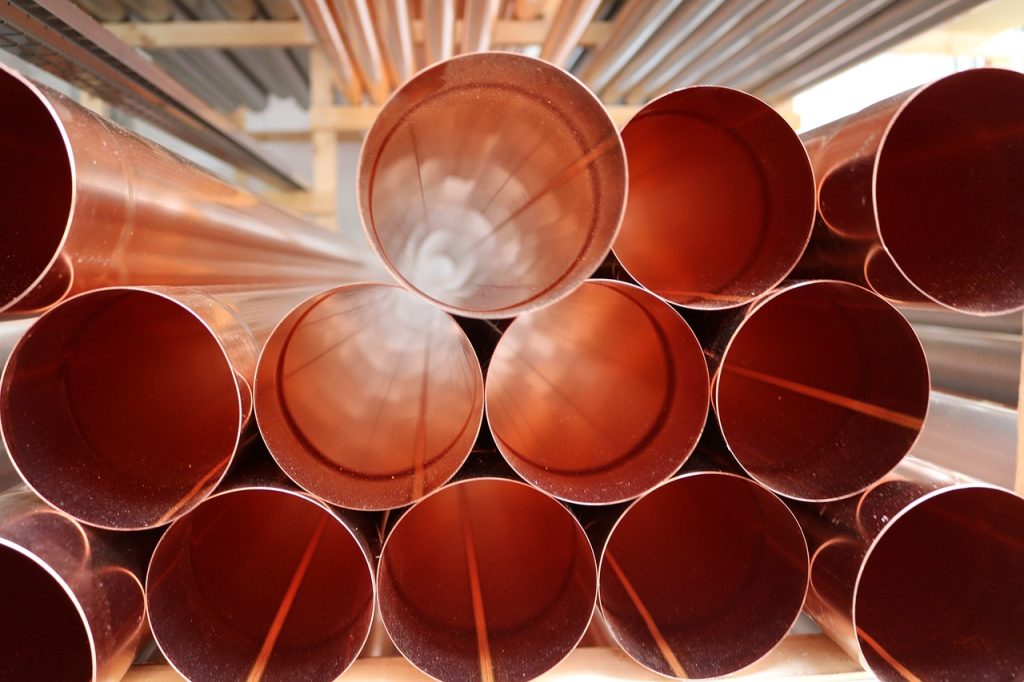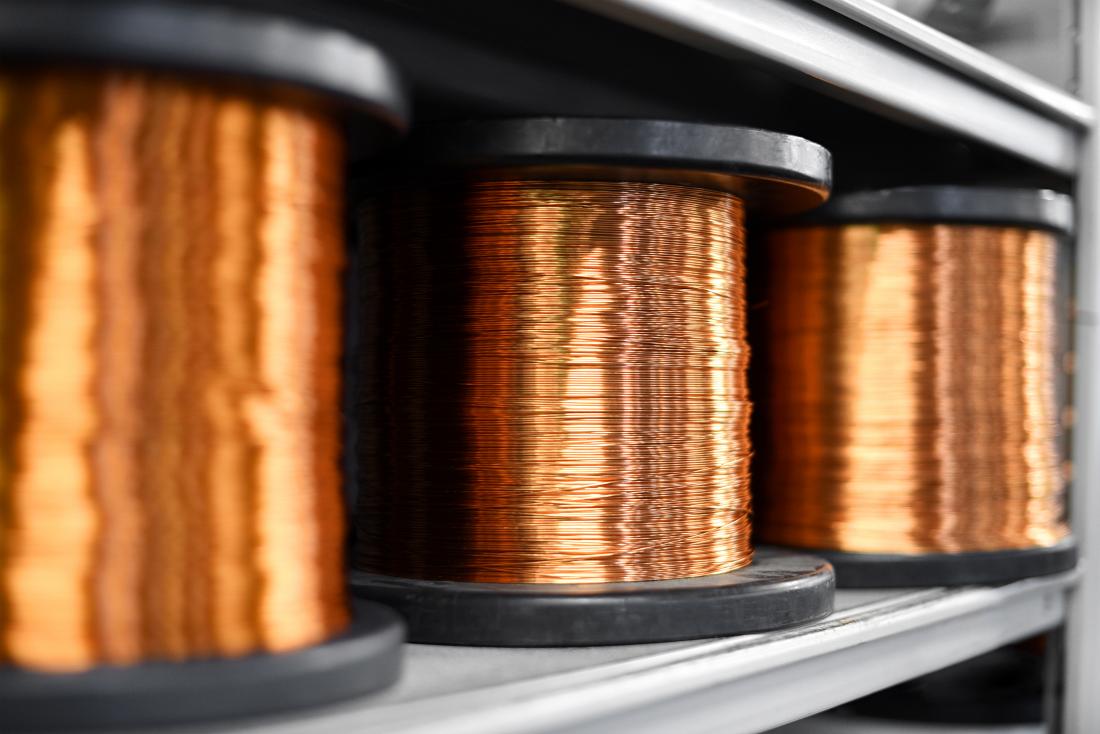The Ultimate Overview to Sustainable Coping With Eco-Friendly Copper Products
The Ultimate Overview to Sustainable Coping With Eco-Friendly Copper Products
Blog Article
Exploring the Diverse Applications of Copper Products in Modern Industries
From improving the performance of electrical systems to playing an essential function in renewable energy innovations, the adaptability of copper is obvious. As industries progressively prioritize technology and sustainability, the diverse applications of copper necessitate a closer assessment, particularly concerning their prospective impact on future ecological practices and technical advancements.
Electric Applications of Copper
Copper is a necessary product in the electrical industry, accounting for roughly 60% of the overall need for non-ferrous metals globally - Copper Products. Its remarkable electrical conductivity, which is almost twice that of light weight aluminum, makes it the favored option for a variety of electrical applications. From circuitry systems in industrial and property buildings to high-voltage power transmission lines, copper makes sure performance and integrity in electrical energy distribution
Along with electrical wiring, copper is important to the manufacturing of electrical elements such as transformers, electric motors, and generators. These elements utilize copper's thermal conductivity and malleability, vital for warm dissipation and efficient efficiency. Additionally, copper's resistance to rust boosts the life-span and durability of electrical systems, making it a cost-effective solution in the long term.
The development of eco-friendly energy sources, such as solar and wind power, has even more enhanced the demand for copper in electrical applications. As markets transition in the direction of sustainable energy services, copper's function becomes also a lot more vital. In general, the flexibility and performance attributes of copper strengthen its status as a foundation product within the electric industry, driving technology and efficiency across various applications.
Plumbing and Piping Solutions
In modern-day plumbing systems, the choice of materials significantly affects both performance and longevity. Copper has become a recommended alternative as a result of its distinct residential properties, including corrosion resistance and antimicrobial features. These characteristics ensure that copper piping remains secure and long lasting for transporting potable water, a vital factor to consider in household and business applications.
Among the key benefits of copper in pipes is its capability to stand up to heats and stress, making it suitable for a variety of applications, from warm water systems to heating and cooling networks. Furthermore, copper's flexibility permits for much easier setup in intricate piping designs, reducing the danger of failings and leakages.
Another noteworthy advantage is copper's long life-span, usually surpassing 50 years with appropriate upkeep. This long life not just decreases substitute costs but also adds to sustainable practices by minimizing waste. Copper's recyclability lines up with modern environmental requirements, advertising a round economy within the plumbing industry.
Copper in Renewable Power
The flexibility of copper extends past plumbing applications, playing a vital duty in the eco-friendly power field. In solar panels, copper is used in photovoltaic or pv cells and circuitry, promoting reliable power conversion and transmission.

Moreover, as the international demand for electrical automobiles (EVs) rises, copper's role in battery systems and charging infrastructure ends up being a lot more significant. The material's ability to perform electrical power efficiently is integral to the efficiency of EV batteries, boosting range and billing speed.
Copper's Role in Electronic devices
Electronic devices producing relies greatly on copper's phenomenal residential or commercial properties, particularly its high electric conductivity and thermal performance. These features make copper an ideal choice for a vast array of digital elements, consisting of adapters, motherboard, and circuitry. The steel's capacity to successfully transfer electric signals ensures marginal energy loss, which is essential in high-performance electronic devices.
In addition, copper's thermal conductivity plays a significant role in warmth dissipation, shielding delicate elements from overheating. This is particularly crucial in contemporary electronic devices, where portable styles bring about increased warmth generation. Copper is likewise favored for its pliability and ductility, permitting it to be quickly formed into elaborate layouts that fulfill the needs of innovative electronic applications.
With the rise of consumer electronic devices, telecoms, and electrical lorries, the demand for copper in the electronics field continues to grow. Thus, copper remains a cornerstone product in the ever-expanding area of electronic devices.
Cutting-edge Uses in Production

One noteworthy application remains in additive production, where copper-based products are utilized in 3D printing procedures. This enables the development of light-weight parts and complicated geometries, especially in the aerospace and automobile sectors. In addition, copper's thermal conductivity makes it a perfect selection for heat exchangers, improving performance in commercial cooling systems.
Furthermore, the surge of wise manufacturing has seen the incorporation of copper in IoT gadgets, where its conductive capacities support innovative picking up innovations. In the world of renewable energy, copper is pivotal in the manufacturing of photovoltaic panels and wind turbines, promoting extra efficient power conversion and distribution.
As markets strive for sustainability and advancement, copper's convenience and efficiency proceed to place it as an important material, driving developments in manufacturing and adding to the development of smarter, extra effective products.
Conclusion
The integral duty of copper in eco-friendly power and its important feature in electronics underscore its relevance in advancing sustainable practices. Collectively, these applications show copper's vital contribution to technological progression and commercial effectiveness in contemporary society.
From boosting the effectiveness check these guys out of electrical systems to playing an essential duty in sustainable power modern technologies, the adaptability of copper is noticeable. As sectors significantly prioritize advancement and sustainability, the diverse applications of copper warrant a closer evaluation, especially concerning their prospective influence on future technical improvements and environmental techniques.
The growth of sustainable energy resources, such as solar and wind power, has actually further boosted the demand for copper in electric applications. On straight from the source the whole, the adaptability and performance features of copper strengthen its standing as a keystone material within the electric field, driving advancement and performance throughout different applications.
The convenience of copper expands beyond plumbing applications, playing an essential duty in the eco-friendly energy sector.
Report this page